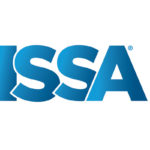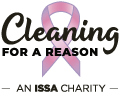News
ISSA Advocacy Weekly Recap—August 9, 2019
August 9, 2019
Welcome to the ISSA Advocacy Weekly Recap! This is ISSA’s regular roundup of the latest public policy related issues impacting the cleaning industry.
U.S. Imposes 10% Tariff on $300 Billion Worth of Chinese Goods; China Retaliates
On August 1, U.S. President Donald Trump announced that the U.S. will impose 10% tariffs on U.S.$300 Billion worth of Chinese goods beginning September 1. According to Bloomberg, China responded with another escalation of the trade war, “letting the yuan tumble to the weakest level in more than a decade (which will make Chinese goods cheaper for overseas buyers), and “asking state-owned companies to suspend imports of U.S. agricultural products.” Analysts warn that another 25% tariff hike is possible, and would risk not only a further weakening of the yuan, but a global recession. “The next round of trade talks is scheduled to take place next month, but Wall Street analysts are predicting that a deal won’t be reached prior to the 2020 election.”
New York Passes Law Protecting Immigrant Workers from Workplace Harassment
New York Governor Andrew Cuomo has “signed legislation creating penalties for discrimination or retaliation against immigrant employees into law,” according to Insurance Journal. “Immigrants should be able to work without the threat of being targeted by their employers because of their immigration status,” said New York State Senator Jessica Ramos.
Cleaning Products Groups Push for Expanded 1,4-dioxane TSCA Risk Evaluation
Under the 2016 amendments to the Toxic Substances Control Act (TSCA), the U.S. Environmental Protection Agency (EPA) released a draft risk evaluation for 1,4-Dioxane revealing that the chemical poses an “unreasonable risk to workers in certain circumstances.” In response, The American Cleaning Institute (ACI) and the Grocery Manufacturers Association (GMA) “called on the EPA to expand the scope of the evaluation to block ‘inconsistent’ state-level regulations on the substance’s presence as a byproduct in consumer products,” according to ChemicalWatch. The EPA is required to finalize these assessments by December, although a six-month extension is possible.
Other links of interest:
- Five Ways to Protect Your Business from the September 1 Tariffs Now
- New York City Businesses Struggle to Keep Up After Minimum Wage Increase
- U.S. Companies Paid US$6B in Tariffs in June, a 73% Increase from June 2018
- Emma Watson and Time’s Up UK Launch Workplace Harassment Legal Advice Line
- Is Automation a Threat, or a Solution to the Labor Shortage?





